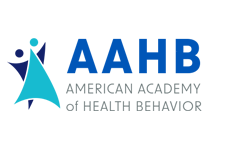Abstract
Exercise is especially beneficial for individuals recovering from addiction. In addition to improved physical, emotional, and mental health, exercise is linked to long-term recovery for those overcoming addiction. With nearly 10% of college students in recovery, and many utilizing campus resources such as collegiate recovery communities (CRCs) to support their recovery, it is important to understand the relationship between exercise and the recovery process among college students. The purpose of this study was to use social network analysis and theory to understand exercise behaviors among a group of college students in recovery. The relationship between exercise and sobriety, mental health variables, and social connections was examined among a network of students involved in a CRC. Of the 50 students involved in this network, 40 participated in the study (80% response rate). Logistic regression analysis revealed a significant model (R2 = .598, p < .0001) predicting whether CRC members exercised enough to yield health benefits. Length of sobriety, higher stress, lower depression, having fewer network ties, and being connected directly to others exercising regularly were significant predictor variables in the model. This study supports the relationship between sobriety and exercise, as well as an association between network connections and exercise behaviors. Incorporating exercise opportunities as part of CRC programming to help students stay sober, as well as identifying key target points for intervention within similar groups of students, could be useful in future practice.
Creative Commons License

This work is licensed under a Creative Commons Attribution-Noncommercial 4.0 License
Recommended Citation
Patterson, Megan S.; Russell, Alex; Spadine, Mandy Nicole; Prochnow, Tyler; and Heinrich, Katie M.
(2020)
"Impact of social networks, mental health, and sobriety on exercise within a collegiate recovery community,"
Health Behavior Research:
Vol. 3:
No.
1.
https://doi.org/10.4148/2572-1836.1074
Included in
Community Health and Preventive Medicine Commons, Other Mental and Social Health Commons, Other Social and Behavioral Sciences Commons, Substance Abuse and Addiction Commons




